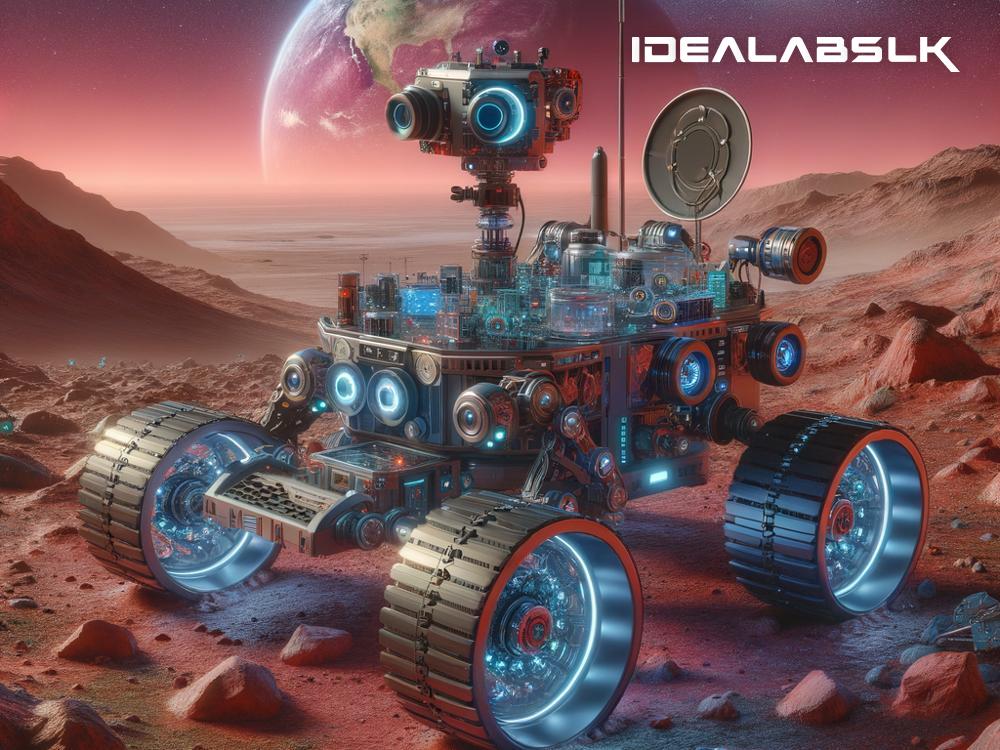Title: The Future of Space Rovers: A Peek into Tomorrow's Robotic Explorers
The exploration of our solar neighborhood has always been a fascinating journey, filled with discoveries, challenges, and advancements. At the forefront of this exploration are the space rovers—robotic vehicles designed to travel across the surface of planets and moons, acting as the eyes and hands of scientists back on Earth. As we look toward the future, specifically up to 2025, the evolution of space rovers presents an exciting chapter in the story of space exploration, particularly on Mars and beyond.
The Next Wave of Martian Rovers
Mars, our closest planetary cousin, has been the focal point of rover missions for decades. By 2025, the landscape of Martian exploration is expected to change dramatically, with innovations focusing on mobility, autonomy, and the ability to conduct more complex scientific research.
One of the significant advancements in Martian rovers will be their enhanced mobility. The difficult terrain of Mars—with its rocks, pits, and dust storms—poses a significant challenge. Engineers are working on rovers that can traverse these obstacles more efficiently. We're talking about wheels that can adapt to different terrains, and even the potential for rovers that can hover or fly short distances to bypass obstacles.
Autonomy is another game-changer. Future rovers will be equipped with advanced AI systems, enabling them to make decisions without waiting for instructions from Earth. This means they can identify interesting scientific targets themselves, navigate more efficiently, and respond to hazards in real-time. With these improvements, rovers can cover more ground and conduct more science, making our exploration efforts more fruitful than ever.
Finally, the scientific capabilities of future Mars rovers will be nothing short of revolutionary. Imagine rovers that can drill deeper into the Martian surface to search for signs of past life, or mobile laboratories capable of conducting complex experiments on-site. As these rovers become more sophisticated, our understanding of Mars and its potential for supporting life, past or present, will expand exponentially.
Beyond Mars: Rovers in the Outer Solar System and Beyond
While Mars is an exciting destination, the future of space rovers extends much further into our solar system. Moons like Europa (orbiting Jupiter) and Enceladus (orbiting Saturn) are believed to harbor subsurface oceans, making them intriguing targets in the search for extraterrestrial life.
Rovers destined for these icy worlds will be quite different from their Martian counterparts. They'll need to be capable of drilling through thick ice layers, or even melting their way down, to access the subsurface oceans believed to exist beneath. Additionally, these rovers will need to withstand much harsher conditions, including extreme cold and radiation.
The future may also hold the potential for rovers that can navigate the cloud tops of Venus or the methane lakes of Titan, Saturn’s largest moon. Each of these destinations will require rovers to be designed with unique capabilities tailored to their specific environments.
Technological Innovations Shaping the Future
The evolution of space rovers will heavily rely on advancements in technology. Lightweight, durable materials will allow rovers to endure the harsh environments of other planets and moons. Improved power sources, such as advanced solar panels or nuclear batteries, will enable these robots to operate for longer durations and over greater distances.
Advancements in robotics and AI will not only augment the autonomous decision-making capabilities of future rovers but also enhance their ability to conduct delicate scientific operations, from collecting samples to conducting on-site analysis. Moreover, as communication technology advances, it will become easier and faster for rovers to send vast amounts of data back to Earth, including high-definition images and complex scientific data.
Conclusion: A Bright Future for Robotic Space Exploration
As we look toward 2025, the future of space rovers is incredibly bright. With advancements in mobility, autonomy, and scientific capabilities, these robotic explorers will continue to push the boundaries of what's possible, revealing the secrets of Mars and beyond. Whether searching for signs of past life on Mars or exploring the icy oceans of distant moons, the next generation of rovers will play a pivotal role in unlocking the mysteries of our solar system. And as these technologies evolve, our understanding of the universe and our place within it will surely expand, continuing the enduring human quest for knowledge and discovery.

